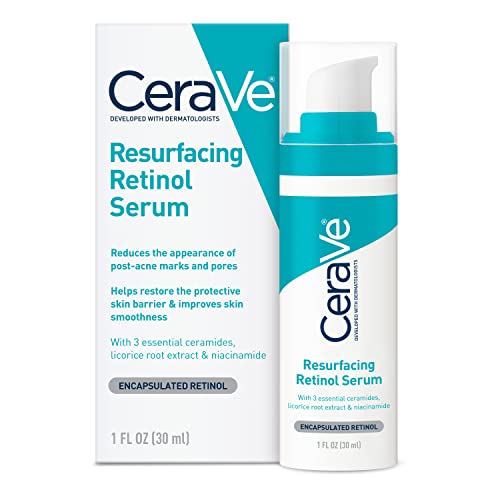Seborrheic dermatitis is an inflammatory skin condition that most often affects the face, scalp, and neck. The cause is unknown, but some researchers think it to be an autoimmune disease because it primarily involves an abnormal response by the immune system towards Malassezia byproducts.
Seborrheic dermatitis also tends to occur in people who have a weaknened immune system and may be improved by treatment targeted at the immune system. All this leads many to believe that seborrheic dermatitis is an auto-immune disease.
Let’s take a deep dive:
What causes seborrheic dermatitis?
Seborrheic dermatitis (SD) is a common inflammatory skin disorder that classically presents with a red, scaly and itchy rash on the scalp, face and trunk. The causes of SD is not fully understood but is likely multifactorial. Researchers believe it may be caused by two main factors – a yeast called Malassezia and the immune system.
Malassezia furfur is a parasitic fungus that is known to play a major role in seborrheic dermatitis. It thrives in areas where there is a high production of oils (sebum), such as the scalp, face, and chest. This is because Malassezia can’t make their own food and need to feed off our skin oils.
Malassezia is found on everybody’s skin. In some SD sufferers, higher levels of Malassezia were found but in many others, normal levels of Malassezia were seen. However, for some reason, our immune system has a distinct hypersensitivity for Malassezia byproducts (their ‘shit’) and over-reacts to it, causing a red, scaly rash.
What’s important is to know that seborrheic dermatitis is not caused by poor hygiene or allergies. However, some people may find that certain skin products or foods trigger their symptoms.
Retinol and other harsh products are common culprits that flare SD:
Is seborrheic dermatitis an autoimmune disease?
Seborrheic dermatitis is largely regarded as a condition in which the body’s immune system has an overactive response to Malassezia byproducts. The reason for this hyper-reactivity is unknown, but it may be due to auto-immunity. This means that your body mistakenly attacks its own cells and tissues as it sees an imagined threat.
People with seborrheic dermatitis report improvement when they use medications that suppress the immune system, such as steroid creams. This suggests that there may be an autoimmune component to this condition.
There is a lack of scientific evidence confirming or denying if seborrheic dermatitis is an autoimmune disease and more research needs to be conducted in this area. However, one thing is certain, an unhealthy immune system plays a big role in aggravating seborrheic dermatitis.
Does seborrheic dermatitis mean weak immune system?
Just because you have seborrheic dermatitis does not mean that you have a weak immune system. There are many people who have seborrheic dermatitis who also have a strong immune system. However, seborrheic dermatitis is found more commonly in certain groups of people who are immunosuppressed:
- HIV patients
- Parkinson’s disease and other neurological disorders
- People with mental health disorders

Even if you don’t have diagnosed immunosuppression, you would have noticed that your seborrheic dermatitis flared when your immune system was weaknened temporarily by any cause:
- Significant traumatic event
- Chronic stress
- Depression
- Fatigue
- Lack of sleep
- Oral steroids
This leads me and many others to believe that a weakened immune system predisposes you to developing seborrheic dermatitis.
Is there a link between seborrheic dermatitis and autoimmune diseases?
There is still much unknown about seborrheic dermatitis, but there are some known links between the condition and other health problems. Some of the most commonly reported associations are with HIV, Parkison’s disease and eating disorders but most SD sufferers don’t have any of these conditions.
Some people with seborrheic dermatitis find that they develop other autoimmune conditions like celiac disease, Crohn’s disease, rheumatoid arthritis, and type 1 diabetes. There are no confirmed links between SD and these diseases. It’s possible that it was only coincidental that you contracted more than one disease. However, if you are diagnosed with an auto-immune disorder, question your diagnosis of seborrheic dermatitis as most autoimmune diseases have skin manifestations that can look similar to SD.
To wrap up
Seborrheic dermatitis is not an autoimmune disorder. However, it is caused by an overactive immune system. That’s why you can’t just treat SD superficially with antifungal creams and steroid creams, you need to treat SD from the inside as well.

Pingback: seborrheic dermatitis acne
Pingback: What foods trigger seborrheic dermatitis?
Pingback: vitamin deficiency seborrheic dermatitis
Pingback: Malassezia seborrheic dermatitis
Pingback: tamanu oil seborrheic dermatitis
Pingback: Does stress trigger seborrheic dermatitis?
Pingback: is seborrheic dermatitis itchy
Pingback: fish oil seborrheic dermatitis
Pingback: Is seborrheic dermatitis a fungus?
Pingback: Seborrheic dermatitis of the nose: Causes, symptoms and treatments
Pingback: Seborrheic dermatitis: common oils to avoid
Pingback: Best carrier oils for seborrheic dermatitis
Pingback: kefir seborrheic dermatitis
Pingback: What triggers seborrheic dermatitis?
Pingback: sleep seborrheic dermatitis
Pingback: Why do I have seborrheic dermatitis (and not them)?
Pingback: What is seborrheic dermatitis?
Pingback: Psoriasis vs Seborrheic Dermatitis: Or is it Sebopsoriasis?